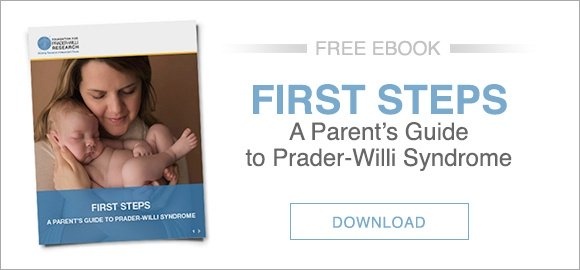This blog provides a brief summary of the FPWR Grant Program Overview presentation given by research team member Theresa Strong at the FPWR 2017 conference. You can watch the full presentation by clicking on the embedded video below.
In case you don't have time to watch the full video, we've captured some of the key points in the notes below.
Theresa Strong is a geneticist and founding member of FPWR. She serves as our Director of Research Programs and is the lead investigator on the Global PWS Registry.
FPWR Grant Program Overview
FPWR asks members of the scientific community for their best ideas and, through a competitive process involving scientific reviewers and parent advocates, selects projects that are a) scientifically sound; and b) important to our children.
The goal of the FPWR grant program is to support early-stage, innovative research and give researchers a head start when they’re applying for larger, highly competitive National Institutes of Health (NIH) grants that can span four to five years, with awards averaging about $250,000 a year.
The program supports research that is:
- “High risk/high reward”
- From both new and established researchers
- Aligned with the priorities of the community, focused on advancing the understanding of PWS and/or developing effective therapeutic interventions
Since its inception, the grant program has invested more than $9 million in research, supporting 135 projects in 13 countries. The research supported by these funds has resulted in more than 125 publications in the medical literature, including papers in many highly regarded journals such as “Nature Medicine,” and the “Journal of Clinical Investigation.” FPWR-supported researchers have gone on to receive more than $8 million in funding from government agencies.
The research is across three categories (in vitro, animal models, clinical) in nine areas (including endocrine, genetics, drug development and behavior/cognition, etc.).
More information about the work supported by the Grant Program can be found in the 2017 Scientific Abstracts, as well as webinars and blogs on the FPWR website.
PWS Genome Project
Another initiative underway at FPWR is the PWS Genome Project, which we expect to launch by the end of 2017 or early in 2018. This project is part of FPWR's directed research program looking at the impact of genetic variants on the PWS characteristics (phenotype) and drug safety and efficacy.
There are many clinical symptoms in PWS that vary from person to person, from growth hormone deficiency (nearly 100 percent of patients) to hypothyroidism (15-20 percent) and scoliosis (50 to 70 percent). The Genome Project aims to define genetic variants, outside of the PWS region on chromosome 15, that might impact the severity of these symptoms. In addition, knowing these gene variants may help determine who will benefit from which drugs, and who may experience side effects.
The goal of the Genome Project is to:
- Better understand the variability of PWS symptoms
- Better understand the risk of symptoms that are not at 100 percent in PWS, for instance seizures and autism, in order to inform screening and care
- Predict who will benefit from drugs
- Predict who may experience side effects
We’re currently in the development stage, determining which technology to use and how to ensure data security, as well as thinking through ethical issues involved with uncovering hidden genetic issues. Once the DNA sequence analysis is being done, that information can be linked to the Global PWS Registry to look at what complications an individual has and how that relates to their DNA sequence.
Anyone who wants to be involved must have their information up to date on the Global PWS Registry.
In closing, members of the FPWR research team are involved in the larger scientific and clinical trials community in important ways, which helps to increase the profile of PWS and improve outcomes across the board. The team works actively with the NIH, the Food and Drug Administration, the Clinical Trials Transformation Initiative, the National Organization for Rare Disorders, among others.








